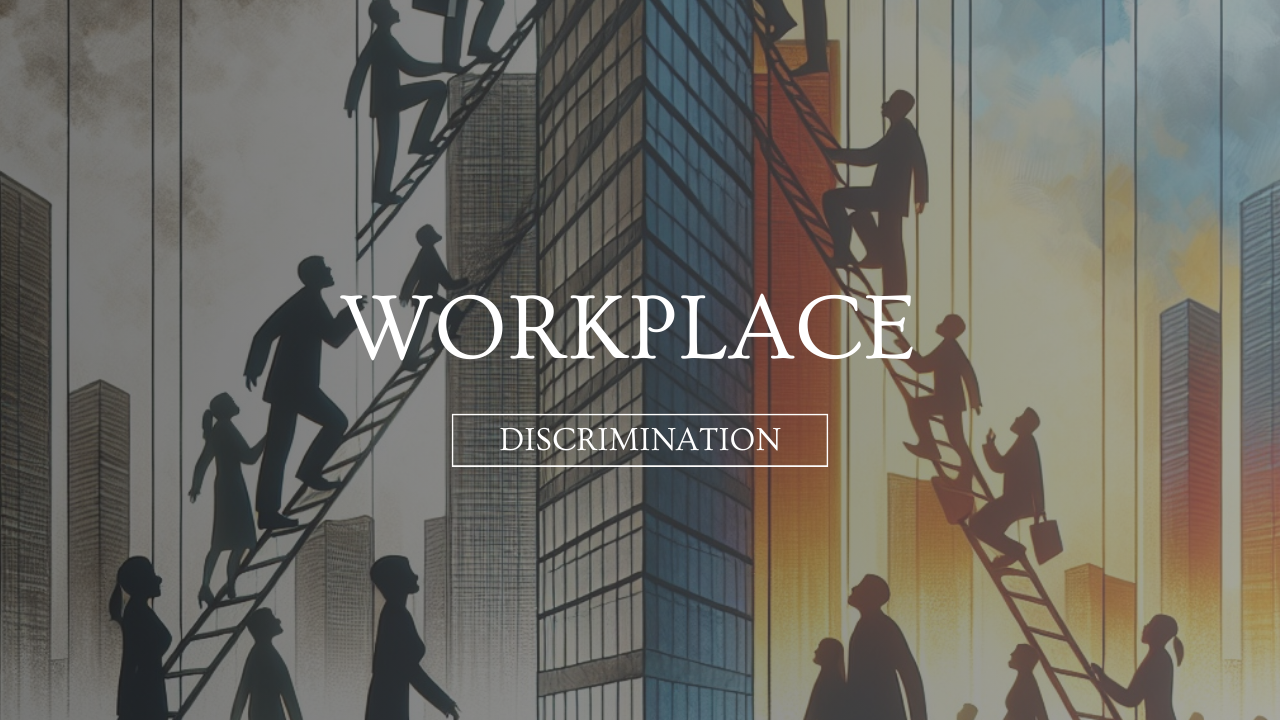Workplace discrimination is any unfair treatment or
harassment an employee receives based on their protected
characteristics. Protected characters can include but are
not limited to:
This can take various forms and can occur at any stage of employment – from recruitment and hiring to termination.

There are several types of workplace discrimination that employees may face:
This occurs when employees are treated differently because of their protected characteristics, rather than receive outward and targeted harassment.
A clear-cut example would be if someone with the same qualifications and work performance as their colleagues is constantly overlooked for promotions because of their age, race, etc.
Several federal laws protect employees from workplace discrimination:
These laws apply to employers with 15 or more employees.
In addition to federal laws, the state of New York has the New York Human Rights Law. This prohibits discrimination based on:
The New York State Human Rights Law also protects employees from retaliation for reporting discrimination. This law applies to employers with four or more employees. It can be used to protect people who live out of state but work in New York. It cannot be used for people who live in New York but work out of state.
Workplace retaliation occurs when an employer takes adverse action against an employee for engaging in legally protected activity.
It’s important to be able to recognize workplace retaliation to take appropriate action. If you suspect that you are being retaliated against, it’s crucial to document any incidents and speak with an experienced employment lawyer. They can help you determine if your rights have been violated and advise you on the appropriate steps to take.
There are laws in place to protect employees from workplace retaliation. The primary federal law that covers this issue is Title VII of the Civil Rights Act of 1964, the same law that protects us against discrimination. This also law prohibits employers from retaliating against an employee for engaging in protected activities such as:
In addition to federal laws, the same New York State law we mentioned before, New York Human Rights Law, also provides additional protections and remedies for employees who have experienced workplace retaliation.
Workplace retaliation can manifest in various forms, such as:
An employee who once handled key accounts might suddenly find themselves shifted to less significant tasks. This could be a form of retaliation if the change occurred after the employee engaged in a protected activity.
Each of these situations could potentially be a case of workplace retaliation. A common theme that someone might experience in all of these situations is the idea that your employers want you to quit. If you believe you have experienced any of these forms of retaliation, it is advisable to consult with a knowledgeable employment lawyer.
Employers may retaliate against an employee for a variety of reasons, such as protecting their reputation or trying to discourage other employees from speaking out. However, workplace retaliation is illegal and goes against the core principles of fairness and equality in the workplace. It also creates a toxic work environment that can negatively impact employee morale and productivity.
Workplace discrimination involves unfair treatment of an employee based on characteristics such as race, gender, age, religion, disability, or other protected traits defined by federal and state laws.
"*" indicates required fields
*Required field
Our team at Seppinni Law has a deep understanding of both federal and state laws and can effectively represent employees who have faced discrimination in the workplace. We will work tirelessly to protect your rights and help you hold your employer accountable for their actions.
If you believe you have been a victim of workplace discrimination, do not hesitate to reach out for help. Our team is committed to fighting for justice and equality in the workplace. Let us help you get the justice and fair treatment that you deserve. Contact Seppinni Law today.